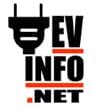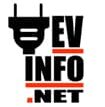First Standard Supporting MOBI Battery Initiative
The Mobility Open Blockchain Initiative (MOBI) rolled out its Battery State of Health (BSOH) Standard today, marking a significant milestone in the electric vehicle (EV) industry. The BSOH Standard is set to stimulate greater EV adoption by providing a reliable, blockchain-based measure of a battery’s health and performance. This increased transparency offers assurance to various stakeholders including vehicle owners, financial lenders, and insurance providers.
Furthermore, the BSOH Standard is poised to facilitate decentralized grid storage options, a step forward in the broader utilization of renewable energy sources. This development also paves the way for a thriving secondary EV market, offering consumers access to pre-owned EVs with certified battery health, thereby making sustainable transport more affordable.
By granting access to SOH data, EV owners can readily determine if a battery needs charging or replacing, thus mitigating range anxiety and boosting buyer confidence in new and used EVs. The Battery SOH Standard isn’t just a singular solution, but a foundational aspect of the wider MOBI Battery Initiative. The initiative is centred around the creation of a comprehensive, California Air Resources Board (CARB)-compliant framework for a secure industry-wide data management system.
This system is designed to enhance visibility and sustainability of the global battery value chain, in line with the EU Battery Directive’s requirements. A major part of this system is the Battery Passport, a tool for tracking batteries throughout the value chain using key characteristics, including SOH.
“MOBI and our members expect that this first Battery SOH Standard and the MOBI Battery Initiative will contribute to the creation of a greener, more resilient global battery value chain, and accelerate our common goal for a sustainable, low carbon transportation future,” said Tram Vo, MOBI Director & Founder.
“Aucnet aims to become the leader in the sustainable circular distribution of used EVs and their batteries. Accurate, transparent battery SOH evaluation is a key factor for this, and the MOBI Battery SOH standard is an important step towards enabling it,” said Masayasu Takigawa, Senior Managing Executive Officer at Aucnet Inc.
“Having a common approach to battery health doesn’t only improve the safety and efficiency of electric and hybrid vehicles, it’s key to increasing their adoption and helping the industry collaborate better,” said Roger Berg, vice president of North America R&D at DENSO. “It’s building blocks like these that help us pursue DENSO’s Two Great Causes: Green – achieving carbon neutrality by 2035 – and Peace of Mind – creating a safe and seamless world for all.”
“The Battery SOH Standard will allow digital solutions to be implemented securely and reliably in a range of use cases including battery tracking, repurposing, and so on, and has the potential to bring significant benefit to the electric vehicle (EV) ecosystem,” said Dr. Xiaoliang Zhu, Sr. Researcher, R&D Division of Hitachi America, Ltd.
“The Battery SOH Standard released by MOBI establishes a solid foundation for stakeholders in the battery ecosystem sharing battery health information in a trustworthy manner and unlocks new opportunities to create an effective circular economy for future mobility applications,” said Dr. Xinxin Fan, IoTeX Head of Blockchain and Research.
In addition to producing the SOH Standard, MOBI is also paving the way in developing a W3C-compliant decentralized battery identity number (BIN) standard. This will be fundamental for the Battery Birth Certificate and Battery Passport, which are managed by the cutting-edge battery Self-Sovereign Digital Twin™. Within the battery value chain, MOBI’s Integrated Trust Network stands out as the blockchain-based identity trust anchor.
Moreover, the Citopia marketplace facilitates verifiable credentials for peer-to-peer SOH data sharing. The creation of the MOBI Battery SOH standard was made possible by the invaluable contributions of industry giants such as Accenture, ASJade Technology, Aucnet Inc., Amazon Web Services (AWS), Blockedge, CarIQ, CEVT, DENSO, Ford, General Motors, Henshin Group, Hitachi America, Ltd., IoTeX, Information Technology Institute, ITOCHU, NuCypher, peaq, Reply, and USAA.

